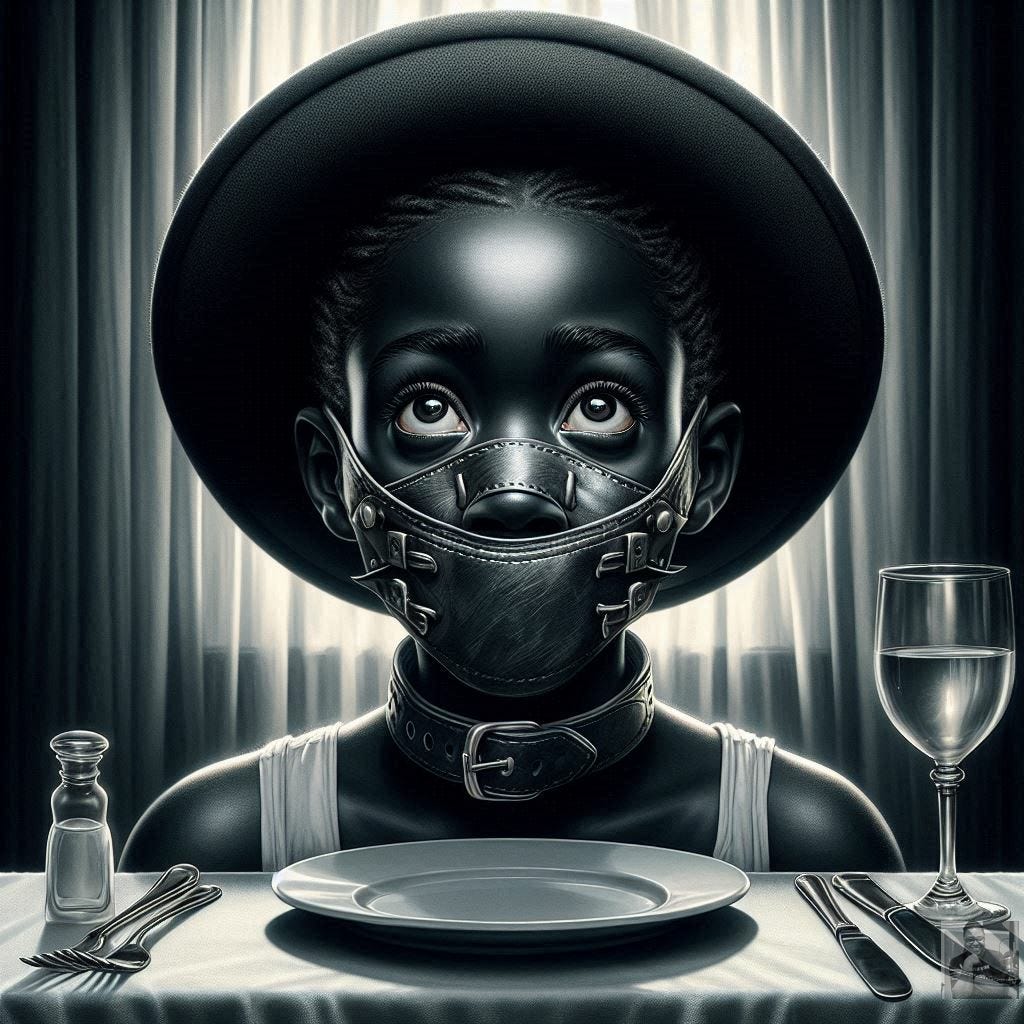Thinking Thursday #7
When Silence Is Survival
I grew up learning that silence could save your life.
And not the kind of “learning” that comes with notebooks and raised hands.
Not the kind of learning that earns you praise, gold stars, or a pat on the back.
No.
This was another kind of education.
A curriculum written in slammed doors, backhands, and long stares.
You don’t sit at a desk for this kind of lesson—you flinch your way through it.
Speak too slow?
Slap.
Speak too loud?
Shut up.
Don’t speak at all?
What’s wrong with you?
Learning, in my house, wasn’t about discovery.
It was about correction.
Not growth, but control.
And silence? That became my sharpest survival skill.
A part of my voice—and the reason I speak now, in full, with trembling and truth—is because there were years when I couldn’t.
Not because I didn’t have thoughts.
Not because I didn’t have fire.
But because my agency—my instinct—was punished the moment it moved.
I am, in many ways, an abuse survivor.
But that abuse was wrapped in something more complicated: protection.
My mother, a Black woman raised under the long shadow of survival, believed that silencing me—slapping my mouth, snapping my words shut—was her way of keeping me safe.
Because she knew what happened to little Black girls who spoke too boldly, too truthfully, too freely.
She believed the world would break me if she didn’t teach me to stay quiet.
So she broke me first.
And now? Now I’m still trying to glue the shards of my voice back together.
I’m still trying to speak out loud when I know something is wrong, instead of swallowing it to keep the peace or avoid the sting. So when I hear leaders speak casually about who should or shouldn’t exist, it strikes the same chord in me. The punishment might look different, but the lesson is the same: silence the ones who don’t fit.
A few days ago, the current president stood behind a podium and said something that hasn’t stopped echoing in my mind since:
“Tylenol causes autism.”
That was the claim.
Said out loud. With cameras rolling.
Like it was fact.
And as someone who took Tylenol while pregnant—because I was trying to manage pain, fever, migraines, whatever was happening in my very real, very human, very pregnant body—I was offended. Deeply.
Not just because the science is shaky at best. Not just because these kinds of claims have already been debunked by autism advocates, medical experts, and actual data.
But because it triggered something older in me. Something sharper.
That thing? It’s called eugenics.
It’s the idea that some people are more “fit” to exist than others.
It’s the logic that says certain bodies, certain minds, certain traits should be prevented, minimized, or eliminated—for the good of society.
And whether we say it with white coats or press briefings, or in whispered conversations with lovers, it’s still violence.
I’ve dated that violence.
Let me be blunt.
I once dated a woman—smart, charming, seemingly aligned with me politically—who looked me dead in the eye and said:
“Women who are addicted to drugs and keep having babies should be sterilized.”
No hesitation.
No irony.
Just... that.
Said over dinner, while sipping a glass of wine.
Like she was saying we needed more speed bumps in the neighborhood.
And I remember freezing. Not arguing. Not unpacking. Just... internalizing.
I didn’t have the words then.
But I do now.
That was eugenics. Dressed up as “logic.”
And what scares me more than the statement itself is how casual it was.
How easily people say things like this and think they’re being “practical.”
As if lived experience, trauma, survival, and agency can be sterilized into statistics.
Who gets to decide what lives are worthy of existing?
Who gets to decide who should be able to parent?
Who gets to pathologize neurodivergence, addiction, or disability into something we can cut out of society?
When you say:
“This child wouldn’t exist if their mother hadn’t taken Tylenol.”
Or:
“This mother should never have had children because of her addiction.”
You’re not just speculating.
You’re suggesting there are people—actual, breathing people—who shouldn’t be here.
And what a slippery, chilling slope that is.
This week, I’m thinking about how ideology sneaks into our beds, our bodies, our boardrooms.
I’m thinking about how shame kept me quiet in the moment.
I’m thinking about how silence is never as neutral as it pretends to be.
I’m thinking about the systems that taught someone I cared about to say something so deeply harmful—and believe she was being reasonable.
And I’m thinking about how tired I am of pretending that people’s “opinions” aren’t rooted in legacy harm.
Thinking Thursday Questions:
When was the last time someone said something that didn’t sit right with you, and you didn’t know why until later?
Have you ever excused harm because you didn’t want to disrupt peace?
What ideologies live quietly in the people we love?
If this hits, sit with it.
Don’t dismiss it. Don’t intellectualize it. Don’t scroll past it.
Sit in the tension.
Ask where you’ve stayed quiet.
And then, when you’re ready, speak.
Because silence may have saved us once.
But silence won’t save us now.
Some of us are here only because someone, somewhere, refused to be quiet.
I honor them by naming this.
And I won’t be quiet anymore. 💎




